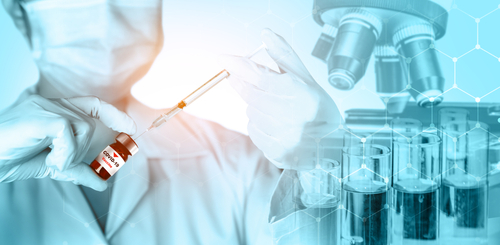
The U.S. Food and Drug Administration (FDA) is preparing to quickly authorize the Pfizer Inc.-BioNTech COVID-19 vaccine for emergency use, following an advisory committee’s recommendations.
That committee voted 17 to 4 in favor of approval. Once emergency use authorization (EUA) is granted, the vaccine will become the first COVID-19 vaccine approved for use in the United States. However, it has already been approved in several other countries.
“The U.S. Food and Drug Administration has informed the sponsor that it will rapidly work toward finalization and issuance of an emergency use authorization,” FDA Commissioner Stephen Hahn and Peter Marks, director of the Center for Biologics Evaluation and Research, said in a joint statement. “The agency has also notified the U.S. Centers for Disease Control and Prevention and Operation Warp Speed, so they can execute their plans for timely vaccine distribution.”
The Vaccines and Related Biological Products Advisory Committee, or VRBPAC, combed safety and efficacy data related to the vaccine candidate for its assessment. Made up of independent scientific and public health experts from throughout the United States, it was meant to add a sense of objectivity to a process on which many lives potentially rely. In the same vein, its discussion of the vaccine was made publicly available and open for public comment.
Following that meeting, FDA staff have set about refining the instructions for the vaccine’s use and the informational materials to be provided to those receiving the vaccine. Data considered includes clinical trial data, non-clinical data on lab development and manufacturing data on how the vaccine is made.
The FDA and other U.S. medical agencies have moved more swiftly on the process of COVID-19 vaccines than perhaps any before, shaving years off of regulatory timelines in recognition of the threat the ongoing pandemic poses. More than 15.6 million people have contracted the disease in the United States, and of those, nearly 300,000 have died. However, the FDA has stressed the need for rigorous review throughout.
“We recognize the urgent need for medical countermeasures to diagnose, treat, and prevent this novel virus and have been working diligently to facilitate their development and availability,” Hahn said. “In particular, the FDA has been working tirelessly with public and private sectors to facilitate the rapid development of COVID-19 vaccines without sacrificing our rigorous scientific standards for safety and effectiveness.”
Once authorized, the first 6.4 million doses of the two-dose Pfizer-BioNTech vaccine could ship swiftly, with health workers among the first slated for distribution.




